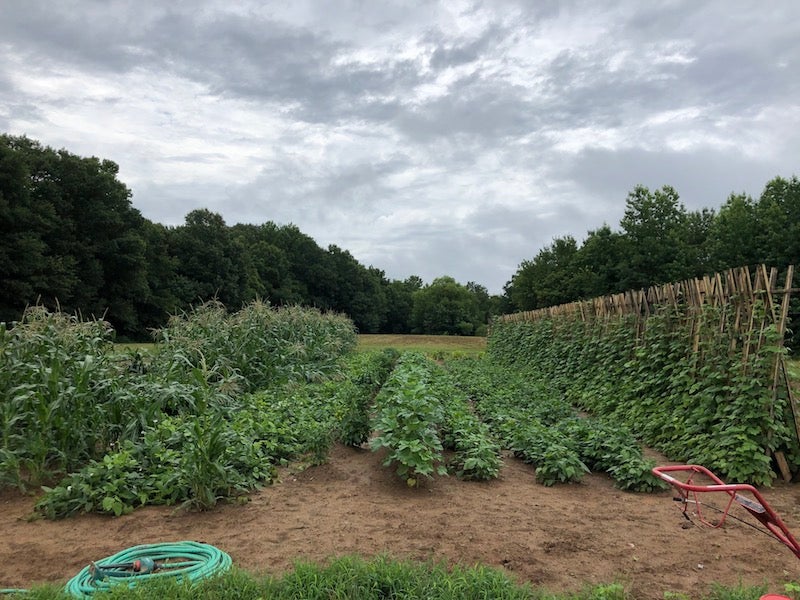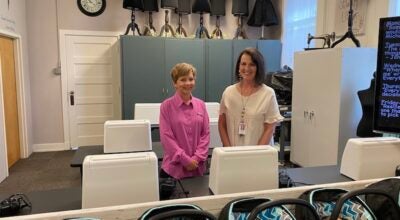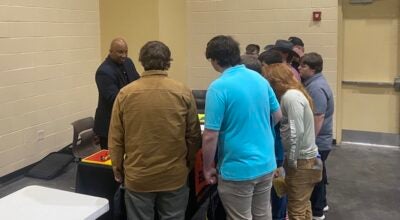Avoid planting vegetables too early
Published 2:58 pm Monday, February 27, 2023

- Planting a summer vegetable garden should wait until after April 15. (LUCY EDWARDS | CONTRIBUTED)
|
Getting your Trinity Audio player ready...
|
By Lucy Edwards | Chilton County Extension Office
In anticipation for spring and enjoying summer vegetables, we often plant too early causing them to struggle. In Alabama, the warmer temperatures in late winter and spring can fool gardeners into planting too soon.
Timing is Key
It is best to wait until after our last frost date (April 15) before planting the summer vegetable garden. These vegetables are most commonly tomatoes, corn, squash, okra, bean, and peas and require warm soil temperatures to sprout and thrive. Optimum soil temperature for vegetable growing is 85˚F; however, we also must be realistic. Realistic soil temperatures are: cucumber (64°), cantaloupe (68°), okra (73°), pumpkin (75°), squash (70°), watermelon (72°), beans (72°), beets (45°), cabbage (54°), chard (54°), eggplant (75°), pepper (64°), radish (45°), tomato (55°), turnip (50°), and corn (55°).
Soil
First, select a garden site that receives at least 6 hours of sunlight and is well drained. Prior to planting, you will want to check your soil by conducting a soil test. Its results will provide information on the existing and non-existing nutrients in the soil. A soil test also checks pH levels. Specific required pH levels may vary for each vegetable. However, most grow well between 6.0 to 6.5. Lime and fertilize according to the soil report.
Rotation
Remember the importance of crop rotation. Planting crops in a different location as opposed to planting the same crop in the same spot each year can reduce problems with insects, nematodes, and diseases. Disease-causing organisms and nematodes slowly accumulate in the soil over time. Growing the same crop in the same location year after year will allow those organisms to reach levels that can cause infection of plants or simply kill them outright. Another reason to rotate is that some crops use more of certain nutrients than others use. Growing the same crop in the same spot can deplete the soil of those nutrients. When deciding how to rotate plants in your garden, remember many vegetables belong to the same family. For example, Irish potatoes, eggplants, and tomatoes are all members of the nightshade family. Don’t plant Irish potatoes this year in the same location that you planted eggplants last year.
Irrigation
The second most important condition is irrigation. Plants need to be watered consistently throughout the growing season preferably at the base of the plant. The leaves, technically, never have to be watered. Keeping leaves dry reduce the chance of disease in the garden. Consider drip or micro-irrigation options for your garden. If overhead irrigation is your only option, water in the early morning. This allows the leaves to dry out during the day.
Maintenance
Lastly, keep the garden free of pests – weeds, insects and disease. Scout your garden daily by examining the leaves. Trim off any dead, diseased or damaged leaves. Remove leaves touching the soil’s surface to avoid disease entry from wet soil. Control insects early by removing them, dropping in a cup of soapy water. Always use pesticides as a last resort. Hand or mechanical cultivation is the best option for weed control in the home garden.
For more information on planning your summer garden, visit our website at aces.edu, stop by the Chilton County Extension Office or give us a call at (205) 280-6268.






